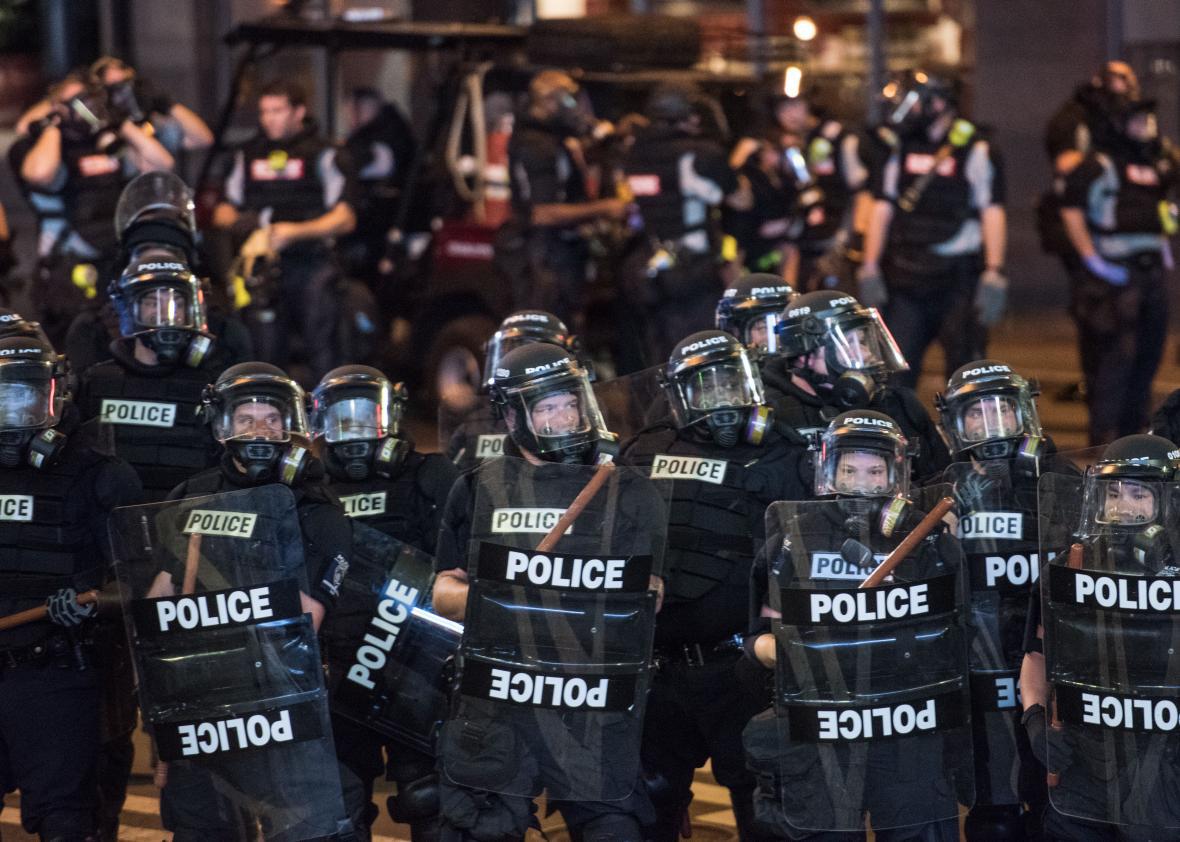Part of what’s been driving the violent unrest in Charlotte, North Carolina, since the police shooting of Keith Lamont Scott is that there are conflicting reports about what Scott was doing when he was killed. Members of his family have said he was merely reading a book in his car. But the Charlotte-Mecklenburg Police Department has insisted he was armed with a gun, and that he “posed an imminent deadly threat to the officers.”
It stands to reason that video footage of the incident—which does exist—would quickly establish the truth, but so far it has not been released to the public.
In a morning press conference dedicated mostly to debriefing Wednesday night’s violent protests, Charlotte police chief Kerr Putney said he has seen the footage and that it does not paint as clear a picture as anyone might hope.
What I can tell you that I saw is the video does not give me absolute, definitive, visual evidence that would confirm that a person is pointing a gun. I did not see that in the videos that I’ve reviewed. So, what I can tell you though, is that when taken in the totality of all the other evidence, it supports what we’ve heard, and the version of the truth that we gave about the circumstances that happened that led to the death of Mr. Scott.
The “version of the truth” police gave on Wednesday morning stated that police approached Scott after seeing him get out of his car with a handgun and then get back in. When Scott got out of his car again, the police say, officers gave “loud and clear verbal commands” for him to drop his weapon, and shot him after he ignored the commands.
On Thursday morning, Putney said there are currently no plans to release the video of the confrontation to the public. “You shouldn’t expect it to be released,” Putney said in response to a question from a reporter.
It’s a surprising stance for Putney, a police chief who has thought deeply and with uncommon open-mindedness about why police shootings happen and when they should be considered justifiable. There’s no question he understands that withholding the video creates an information vacuum that encourages many members of the public to assume the worst, and creates the impression that the police are trying to cover something up. He also probably understands that such skepticism of police is reasonably informed by a string of incidents—most notably, the shootings of Walter Scott in North Charleston, South Carolina, and Laquan McDonald in Chicago—that have demonstrated the willingness of some police officers to lie about events leading up to use of force decisions.
In the press conference, Putney said he is currently focused on honoring a request from the Scott family to view the video, and appeared adamant about not releasing it publicly any time soon. One can only speculate as to why—which is exactly the problem.
